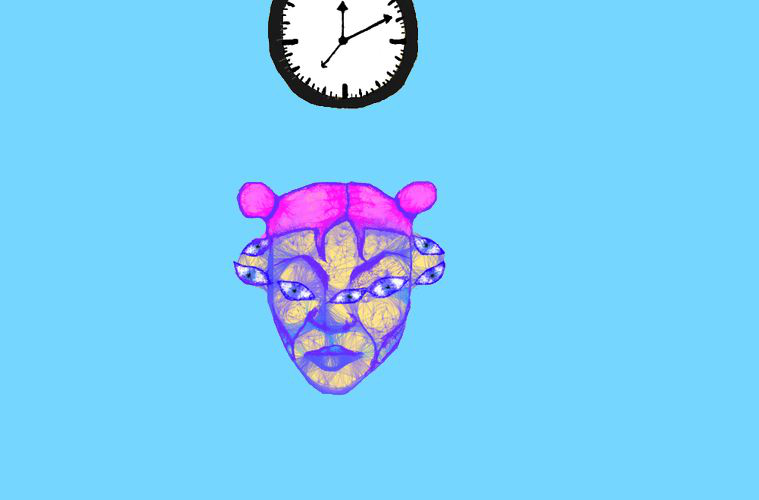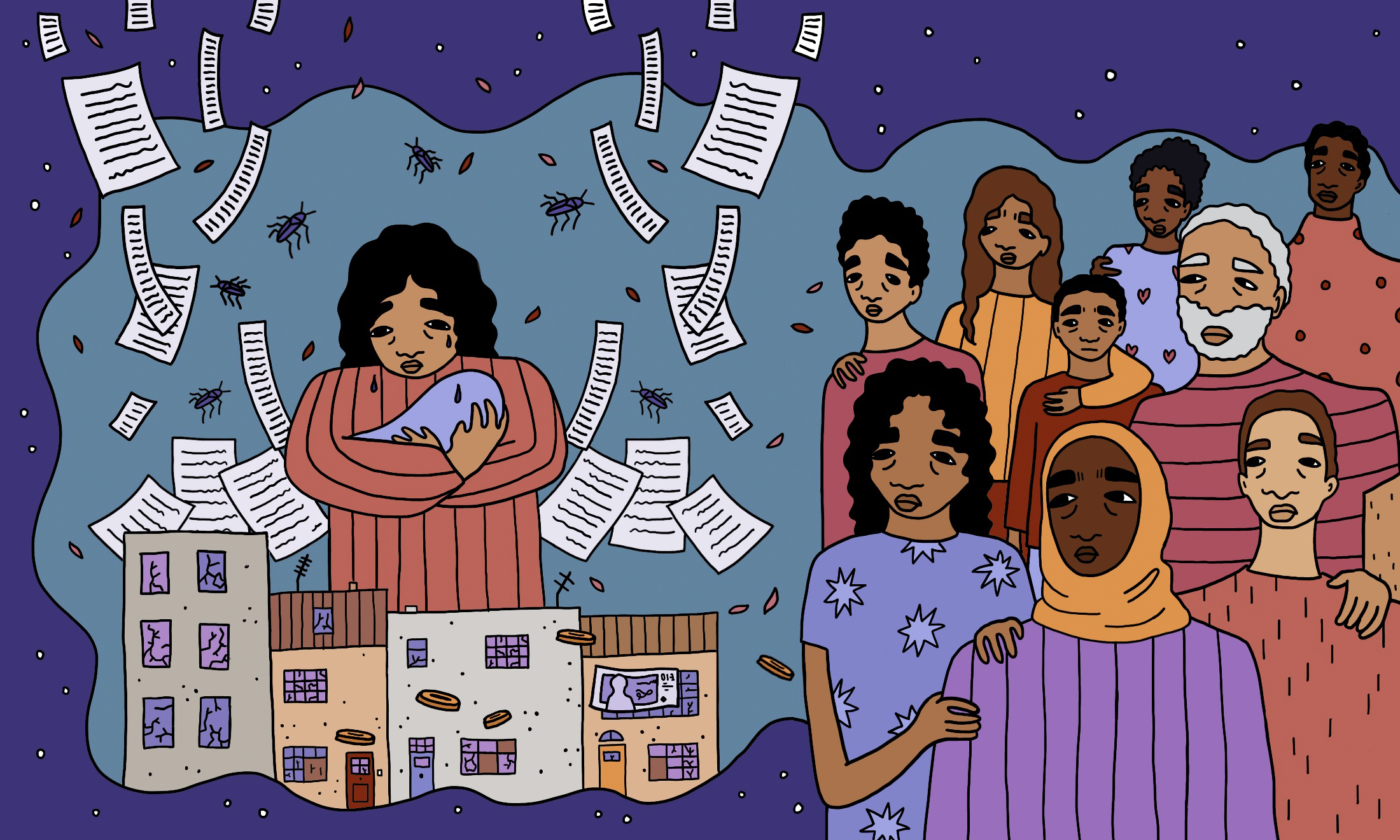
Image by Maia Magoga
I never liked cliché’s. I especially never liked “time flies when you’re having fun!” – a phrase that conjures up an image of so many grinning faces, having the time of their lives, the days speeding by, not a care in the world. The other side of it is, of course, sad lonely faces, faced with never-ending days of no relief stretched out before them.
I never liked this phrase because, to me, since a criminally young age, time has been escaping me faster than I’d like, and never slowing down when I was having no fun at all. For me, time flies when I’m depressed.
I sleep most of the day away. I let important writing emails gather dust, squandering my potential, the opportunities disappearing as quickly as they came. I stay in my pyjamas; the afternoon and early evening become impossible to tell apart without looking at a clock. The dishes pile higher and higher. Night always arrives so quickly; by which time I might as well just go back to sleep. Try again tomorrow. All of a sudden, a week has gone by. Time I’ll never get back.
I used to think I was just wired differently than other people. Mental health wasn’t something I was aware of until I was much older. So, until I taught myself about it, I attributed my dark thoughts to what my primary school teacher had called an “overactive imagination.”
My parents agreed with her, and suddenly that was the reason for everything. I was quite happy having a box to fit in, even if I knew it came along with connotations of being an attention seeker. I thought obsessively about running away – then I thought about killing myself – two things I never actually attempted but would meticulously plan out, light-headed and dizzy with so many tears.
“I always hated washing up until I’d roll up my sleeves and give in”
When I was around thirteen, the thoughts stopped coming. I put it all down to my overactive imagination, and managed to forget about what had silently plagued me for so many years.
My mum had a framed cliché in the kitchen. An A4 print that read “a clean place makes a happy space.” I hated it, because I hated the chore that was assigned to me: washing the dishes. In the way only a teenager could, I felt hard done by, as if I’d been given the world’s most awful job. The funny thing is, I always hated it until I’d rolled up my sleeves and given in.
I actually enjoyed the ritualistic nature of scrubbing plates, the soap and bubbles, the clinking of knives and forks against the wire dish rack. I thought of nothing but those dishes and the crackling of the radio whilst I scoured and dried. It always went by so quickly in the end.
Yet, the following night, I’d dread having to do it again, trying to come up with excuses, resisting perhaps the most peaceful thing I’d known. I still don’t know exactly why, but I spent my entire teenage life hating the thought of doing the dishes.
The initial feeling of being overwhelmed by a sink full of dirty dishes took a long time to leave me. After moving out of my childhood home and into a flat of my own, dishes were no longer something my mum wanted me to do, but something I had to do. And this only made it worse.
I have never been able to explain my contradictory attitude towards washing up, except that perhaps they symbolise getting my shit together, a simple act that defies hiding from responsibility, the first step to being productive.
“I didn’t realise I bought into the stigma surrounding mental health until two weeks had passed and I still hadn’t allowed myself to take a single pill”
Despite putting it off, I always did them, except for when I felt hints of the darkness creeping back in – a state that seemed to make me physically incapable of turning the taps on – but I was lucky for a while. It never seemed to stick around longer than a day, and when it was gone, I’d drag myself back over to the sink, armed with rubber gloves, humming along to the radio.
Not long after moving out and enrolling at university, the darkness swept back in with a vengeance. It took a GP around four minutes to confirm what I self-diagnosed: I had depression. In a stupor, embarrassed and disturbed, I simply nodded along whilst he spoke at me. I didn’t realise I was crying until he handed me a tissue. Then he was printing out a prescription for antidepressants.
I didn’t realise I bought into the stigma surrounding mental health until two weeks had passed and I still hadn’t allowed myself to take a single pill. In fact, it would take a couple more years until it was a route I’d even consider.
I’ve written about depression before, and luckily there’s more information out there than ever, with so many brave stories being told that I needn’t give you the gory details. But one thing I couldn’t avoid was an inability to do the dishes. I was in a relationship at the time, but he worked a lot, and when he wasn’t home they would simply pile higher and higher, submerged in dirty water, getting scarier and scarier until I avoided the kitchen altogether, even if I was hungry.
When my partner came home and cleaned it up I felt like I could breathe, but, as you’ll know, a clean kitchen never lasts long. It became my greatest fear, the impossible task, a clear symbol of my inability to take care of myself.
“I know washing up to be a peaceful method of self-care, an act that doesn’t cost you as much as a scented candle or a bottle of bubble bath, yet has an invaluable pay-off”
When the depression began to dissipate and the darkness had started to fade – which it always, always does – I knew what I wanted to do. I made myself a cup of tea and two slices of peanut butter on toast. When the time came to put my dishes in the sink, rather than just letting them lie there, I washed them immediately. I was home alone, but I was laughing as I took a used pan off the stove and started to wash that, too.
Today, I know washing up to be a peaceful method of self-care, an act that doesn’t cost you as much as a scented candle or a bottle of bubble bath, yet has an invaluable pay-off. Cleanliness is good for you, it allows space to think, to re-organise, to plan ahead.
I have found myself falling in love with filling the sink, opening the windows, singing badly and stacking bowls, mugs, pots and pans. Even on dark days, it brings clarity, and provides literal evidence that you have taken control of your surroundings, however big or small a task it may seem. When the darkness does return, it has less power. You can walk into your kitchen, turn on the radio and focus entirely on your job. I never liked cliché’s, but perhaps this is one I can get behind: “it always seems impossible until it is done.”









